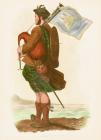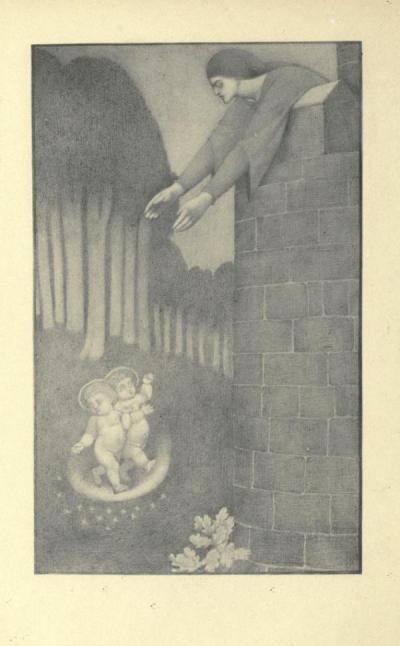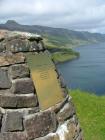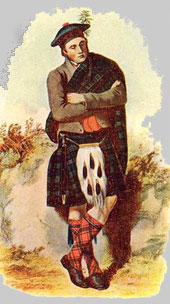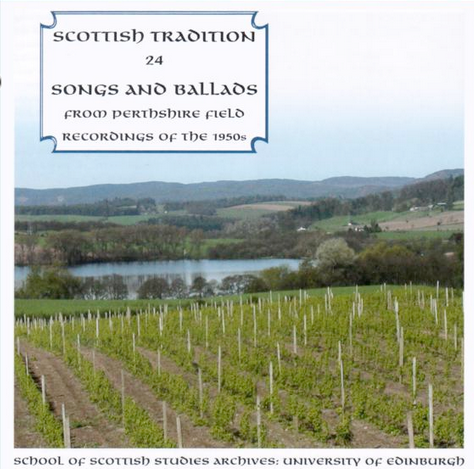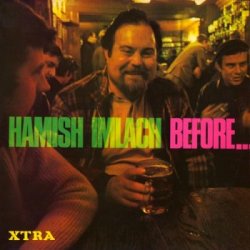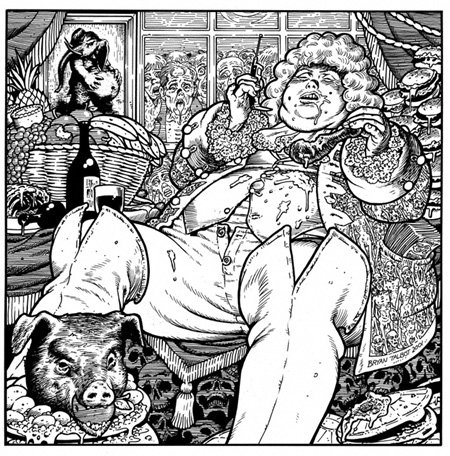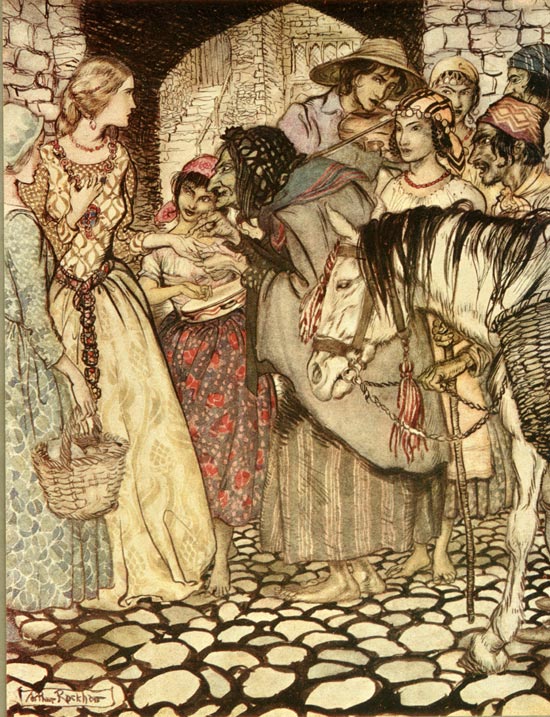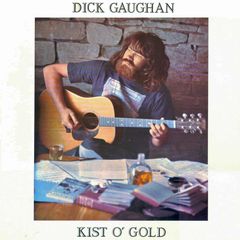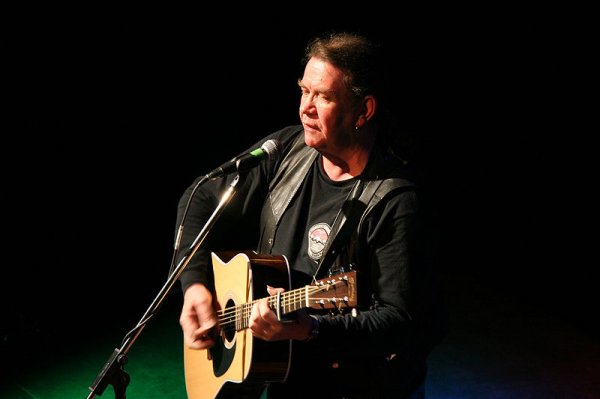Le roi Renaud [La mort du roi Renaud; Quand Renaud de guerre revint]
anonimo
![Le roi Renaud [La mort du roi Renaud; Quand Renaud de guerre revint]](img/thumb/c2499_130x140.jpeg?1328634526)
Clerk Colvill (Colven), Child #42B
Clerk Colvill
(continua)
(continua)
inviata da Riccardo Venturi 10/5/2023 - 10:15
Geordie, or My Geordie Will Be Hanged In A Golden Chain
anonimo

1. LA “VERSIONE DI ROBERT BURNS” - 1792, Scottish Musical Museum [Child #209A]
1. “ROBERT BURNS' VERSION” - 1792, Scottish National Museum [Child #209A]
1. LA “VERSION DE ROBERT BURNS” - 1792, Scottish National Museum [Child #209A]
1. “ROBERT BURNSIN VERSIO” - 1792, Scottish National Museum [Child #209A]
Alistair Hulett, Robert Burns, The Complete Songs, Vol. 7, 1999
La “versione di Robert Burns”, comunicata nel 1792 allo Scottish Musical Museum di James Johnson (di cui Burns era però l'anima), è la versione 209A nel canone Childiano e rappresenta quella che da molti è considerata la vicenda storica originale, avvenuta alla fine del XVI secolo sullo Scottish Border. La versione, probabilmente rimaneggiata da Burns stesso, è in lingua scozzese; nel video allegato, Alistair Hulett la canta integralmente seguendo il testo di Burns. [RV]
George Gordon, sesto conte di Huntly (e diventato... (continua)
1. “ROBERT BURNS' VERSION” - 1792, Scottish National Museum [Child #209A]
1. LA “VERSION DE ROBERT BURNS” - 1792, Scottish National Museum [Child #209A]
1. “ROBERT BURNSIN VERSIO” - 1792, Scottish National Museum [Child #209A]
Alistair Hulett, Robert Burns, The Complete Songs, Vol. 7, 1999
La “versione di Robert Burns”, comunicata nel 1792 allo Scottish Musical Museum di James Johnson (di cui Burns era però l'anima), è la versione 209A nel canone Childiano e rappresenta quella che da molti è considerata la vicenda storica originale, avvenuta alla fine del XVI secolo sullo Scottish Border. La versione, probabilmente rimaneggiata da Burns stesso, è in lingua scozzese; nel video allegato, Alistair Hulett la canta integralmente seguendo il testo di Burns. [RV]
George Gordon, sesto conte di Huntly (e diventato... (continua)
There was a battle in the north,
(continua)
(continua)
inviata da Riccardo Venturi 23/1/2021 - 17:22
Bessy Bell and Mary Gray
anonimo
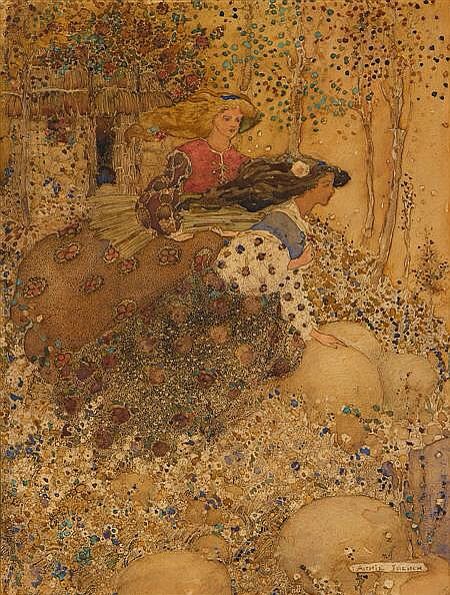
[XVII sec. / 17th Century]
Child #201
Dal '600 scozzese e dalle Child Ballads direttamente al Canzoniere del Coronavirus: ecco qua una delle più brevi e folgoranti ballate britanniche, “Bessy Bell and Mary Gray”. La storia di due belle ragazze che pensavano di sfuggire alla pestilenza. In un primo momento avevo pensato di ampliare un po' l'introduzione che avevo fatto in tempi lontanissimi; poi mi son detto che l'ineludibile Cattia Salto, nelle sue Terre Celtiche, doveva averci pensato in una maniera ben migliore. Detto, fatto; ed ecco l'ennesimo “furto” che compio nei suoi confronti. Furto un po' contemperato dal fatto che, con un mezzo sorriso che, di questi tempi, è un bene prezioso, mi son visto integralmente riprodotta proprio la breve introduzione alla ballata che avevo fatto nello scorso millennio (ed anche la traduzione italiana). [RV]
Bessy Bell and Mary Gray
La ballata “Bessy... (continua)
Child #201
Dal '600 scozzese e dalle Child Ballads direttamente al Canzoniere del Coronavirus: ecco qua una delle più brevi e folgoranti ballate britanniche, “Bessy Bell and Mary Gray”. La storia di due belle ragazze che pensavano di sfuggire alla pestilenza. In un primo momento avevo pensato di ampliare un po' l'introduzione che avevo fatto in tempi lontanissimi; poi mi son detto che l'ineludibile Cattia Salto, nelle sue Terre Celtiche, doveva averci pensato in una maniera ben migliore. Detto, fatto; ed ecco l'ennesimo “furto” che compio nei suoi confronti. Furto un po' contemperato dal fatto che, con un mezzo sorriso che, di questi tempi, è un bene prezioso, mi son visto integralmente riprodotta proprio la breve introduzione alla ballata che avevo fatto nello scorso millennio (ed anche la traduzione italiana). [RV]
Bessy Bell and Mary Gray
La ballata “Bessy... (continua)
Versione 1 / 1st Version
(continua)
(continua)
inviata da Riccardo Venturi 4/4/2020 - 10:19
Dundee lassie
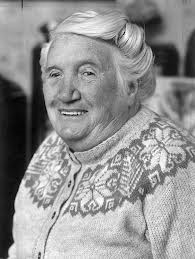
Canzone scritta da Mary Brooksbank nel suo libro “Sidlaw Breezes” (1966), la raccolta di poesie e canzoni sulla dura vita delle lavoratrici nei filatoi di Dundee, Scozia.
Nei filatoi di Dundee degli anni 40 – ai tempi della gioventù di Mary, si lavorava per 10 ore di fila.
“The life of the women workers of Dundee right up to the thirties was … a living hell of hard work and poverty. It was a common sight to see women, after a long ten-hour-day in the mill, running to the stream wash-houses with the family washing. They worked up to the last few days before having their bairns. Often they would call in at the calenders from their work and carry home bundles of sacks to sew. These were paid for at the rate of 5 pence for 25, 6 pence for a coarser type of sack. Infant and maternal mortality in Dundee was the highest in the country.” (testimonianza di Mary Brooksbank).
Terre celtiche
Nei filatoi di Dundee degli anni 40 – ai tempi della gioventù di Mary, si lavorava per 10 ore di fila.
“The life of the women workers of Dundee right up to the thirties was … a living hell of hard work and poverty. It was a common sight to see women, after a long ten-hour-day in the mill, running to the stream wash-houses with the family washing. They worked up to the last few days before having their bairns. Often they would call in at the calenders from their work and carry home bundles of sacks to sew. These were paid for at the rate of 5 pence for 25, 6 pence for a coarser type of sack. Infant and maternal mortality in Dundee was the highest in the country.” (testimonianza di Mary Brooksbank).
Terre celtiche
Ah’m a Dundee lassie
(continua)
(continua)
inviata da Cattia Salto 26/3/2018 - 15:17
The Battle of Otterburn
anonimo
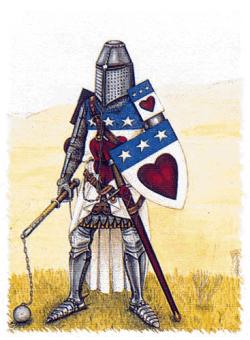
Child ballad # 161
Una battaglia nel Border in un oscuro medioevo teatro di continue scorrerie tra Scozia e Inghilterra (siamo nel 1388) in cui Sir James Douglas, secondo conte di Douglas condusse diversi clan scozzesi alla vittoria contro le truppe inglesi comandate da Henry ""Hotspur" Percy figlio del conte di Northumberland.
Il resoconto della battaglia narrato come ballata, si ritrova su manoscritto solo a partire dal 1550, riportato poi più volte nei broadsides e stampato nelle maggiori raccolte settecentesche, fino a essere ripreso da sir Walter Scott nel suo Minstrelsy of the Scottish Border (1833).
Il conte Douglas era un personaggio influente nel Border, sposato niente meno che con la Principessa Isabella Bruce una delle figlie di Re Roberto II di Scozia.
Una teoria ipotizza che nella ballata si narri di una ripresa delle ostilità contro l'Inghilterra con due eserciti scozzesi... (continua)
Una battaglia nel Border in un oscuro medioevo teatro di continue scorrerie tra Scozia e Inghilterra (siamo nel 1388) in cui Sir James Douglas, secondo conte di Douglas condusse diversi clan scozzesi alla vittoria contro le truppe inglesi comandate da Henry ""Hotspur" Percy figlio del conte di Northumberland.
Il resoconto della battaglia narrato come ballata, si ritrova su manoscritto solo a partire dal 1550, riportato poi più volte nei broadsides e stampato nelle maggiori raccolte settecentesche, fino a essere ripreso da sir Walter Scott nel suo Minstrelsy of the Scottish Border (1833).
Il conte Douglas era un personaggio influente nel Border, sposato niente meno che con la Principessa Isabella Bruce una delle figlie di Re Roberto II di Scozia.
Una teoria ipotizza che nella ballata si narri di una ripresa delle ostilità contro l'Inghilterra con due eserciti scozzesi... (continua)
It fell aboot the Lammas-tide
(continua)
(continua)
inviata da Cattia Salto 25/3/2018 - 22:36
And a-Begging I Will Go (or the Begging Song)
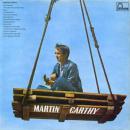
Esistono molte varianti della canzone a testimonianza della sua vasta popolarità e diffusione. Una vecchia bothy ballad che affonda nella materia medievale dei canti dei vaganti
TO THE BEGGING I WILL GO
(continua)
(continua)
inviata da Cattia Salto 25/3/2018 - 00:19
My Last Farewell to Stirling
anonimo
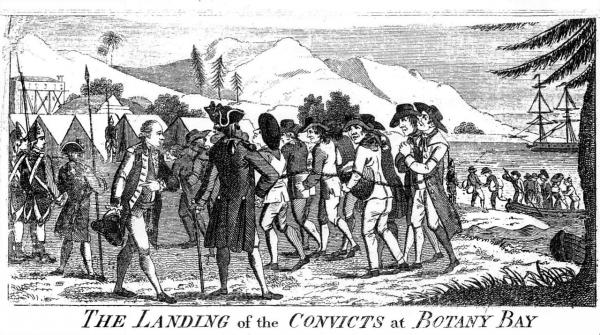
[XIX° secolo]
Una ballata compresa in “The Greig-Duncan Folk Song Collection”, raccolta di canzoni del nord-est scozzese curata dai ricercatori Gavin Greig (1856–1914) e James Bruce Duncan (1848-1917), pubblicata poco prima dello scoppio della Grande Guerra.
La versione riportata, tratta dal sito dello Scots Language Centre, è quella di Charlie Murray, classe 1916. Interpretata in seguito da molti altri artisti, tra i quali in particolare Martyn Wyndham-Read e Ewan MacColl. La versione di quest’ultimo si trova in “Scots Street Songs” del 1956.
Un bracconiere – mestiere allora svolto da poveracci per fame – catturato nella tenuta di un signore, viene condannato a 20 anni di colonia penale in Australia, nella Van Dieman's Land, la Tasmania.
Una ballata compresa in “The Greig-Duncan Folk Song Collection”, raccolta di canzoni del nord-est scozzese curata dai ricercatori Gavin Greig (1856–1914) e James Bruce Duncan (1848-1917), pubblicata poco prima dello scoppio della Grande Guerra.
La versione riportata, tratta dal sito dello Scots Language Centre, è quella di Charlie Murray, classe 1916. Interpretata in seguito da molti altri artisti, tra i quali in particolare Martyn Wyndham-Read e Ewan MacColl. La versione di quest’ultimo si trova in “Scots Street Songs” del 1956.
Un bracconiere – mestiere allora svolto da poveracci per fame – catturato nella tenuta di un signore, viene condannato a 20 anni di colonia penale in Australia, nella Van Dieman's Land, la Tasmania.
Nae lark in transport mounts the sky
(continua)
(continua)
inviata da Bernart Bartleby 31/1/2018 - 11:05
The Flyting o' Life and Daith
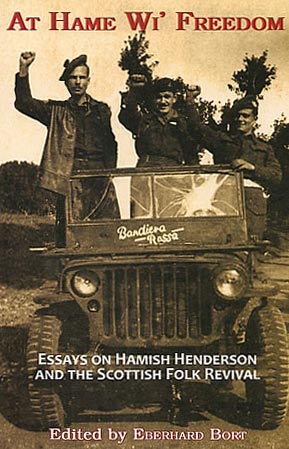
[1963]
Hamish Henderson completò questa canzone nel 1963, ma essa si basa sulla poesia “Streitlied zwischen Leben und Tod” di anonimo autore tedesco, di cui Henderson venne a conoscenza durante il suo servizio nella seconda guerra mondiale. Mi risulta infatti che conoscesse parecchie lingue, tra cui proprio il tedesco.
Nel repertorio di Alasdair Roberts ed Alison McMorland
Testo trovato su Mudcat Café
Hamish Henderson completò questa canzone nel 1963, ma essa si basa sulla poesia “Streitlied zwischen Leben und Tod” di anonimo autore tedesco, di cui Henderson venne a conoscenza durante il suo servizio nella seconda guerra mondiale. Mi risulta infatti che conoscesse parecchie lingue, tra cui proprio il tedesco.
Nel repertorio di Alasdair Roberts ed Alison McMorland
Testo trovato su Mudcat Café
Quo life, the warld is mine.
(continua)
(continua)
inviata da Bernart Bartleby 2/1/2018 - 13:04
The Maid and the Palmer and the Well Below the Valley
anonimo
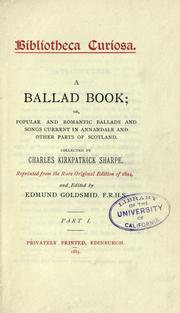
21B. The Maid and the Palmer, il frammento raccolto da Sir Walter Scott e comunicato a Charles Kirkpatrick Sharpe.
The Maid and the Palmer, a fragment collected by Sir Walter Scott and communicated to Charles Kirkpatrick Sharpe.
The Maid and the Palmer, a fragment collected by Sir Walter Scott and communicated to Charles Kirkpatrick Sharpe.
Child #21B, I, 232.
"A Ballad Book, by Charles Kirkpatrick Sharpe, edited by David Laing, p. 157 f, VII; from Sir W. Scott's recollection.
"A Ballad Book, by Charles Kirkpatrick Sharpe, edited by David Laing, p. 157 f, VII; from Sir W. Scott's recollection.
21B.1 ‘SEVEN years ye shall be a stone,
(continua)
(continua)
inviata da Riccardo Venturi 11/9/2017 - 11:56
Elvis Presley: Jailhouse Rock

Authentick Scots renderin by the Tuscan Unkend o' th' Twaenty First Century, as ae trowe olde ballad sang.
Desember 4, 2016 06:17
Desember 4, 2016 06:17
Per BB. L'Anonimo Toscano ti manda anche la sua trasformazione di Elvis the Pelvis in autentico ballad man scozzese, con tanto di ritornello. Naturalmente, una ballata scozzese non può però avere un happy end; almeno una bella impiccagione ci vuole. Salud! [RV]
ROCKIN I' TH' GAOL HUIS
(continua)
(continua)
inviata da L'Anonimo Toscano del XXI Secolo 4/12/2016 - 06:20
Captain Bover
anonimo
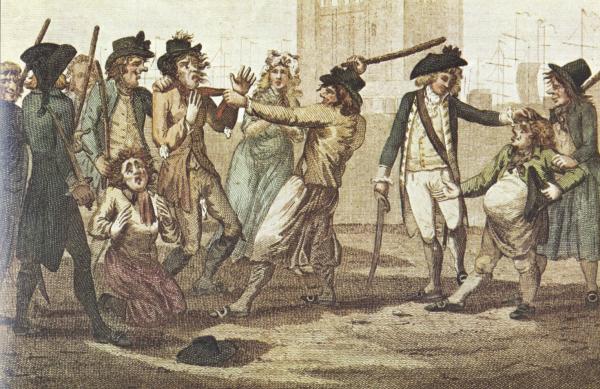
[18° secolo]
Una ballata raccolta da John Stokoe nel suo “Songs and Ballads of Northern England”, 1899.
Si tratta certamente del frammento di una canzone più lunga, che Stokoe apprese da Thomas Doubleday, un uomo politico di Newcastle-on-Tyne, che a sua volta l’aveva sentita da una cantante di strada.
Testo trovato su English Folk Music
Interpretata da molti artisti: The High Level Ranters, Ray Fisher, Corrina Heward e Kathryn Tickell, Graham and Sam Pirt…
Il capitano Bover, di nome John, è un personaggio realmente esistito, un ufficiale della Royal Navy che operò nella contea di Tyne and Wear nella seconda metà del 700. Era molto temuto dai locali, in particolare dai barcaioli che lavoravano al trasporto del carbone e delle merci sul fiume Tyne, perché tra i compiti affidati a Bover e ai suoi soldati, una vera e propria press-gang, era quello di reclutare, anche con la forza, uomini... (continua)
Una ballata raccolta da John Stokoe nel suo “Songs and Ballads of Northern England”, 1899.
Si tratta certamente del frammento di una canzone più lunga, che Stokoe apprese da Thomas Doubleday, un uomo politico di Newcastle-on-Tyne, che a sua volta l’aveva sentita da una cantante di strada.
Testo trovato su English Folk Music
Interpretata da molti artisti: The High Level Ranters, Ray Fisher, Corrina Heward e Kathryn Tickell, Graham and Sam Pirt…
Il capitano Bover, di nome John, è un personaggio realmente esistito, un ufficiale della Royal Navy che operò nella contea di Tyne and Wear nella seconda metà del 700. Era molto temuto dai locali, in particolare dai barcaioli che lavoravano al trasporto del carbone e delle merci sul fiume Tyne, perché tra i compiti affidati a Bover e ai suoi soldati, una vera e propria press-gang, era quello di reclutare, anche con la forza, uomini... (continua)
Whaur hae ye been, my canny hinny?
(continua)
(continua)
inviata da Bernart Bartleby 28/11/2016 - 09:05
Matty Rentz (Child #306)
anonimo
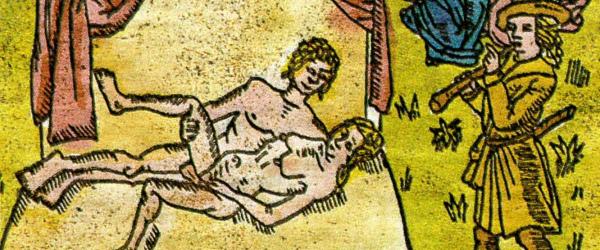
Child #306
[ca. XVII secolo]
From Percy's Folio / Dal manoscritto del Percy
Unreleased / Inedita
Ci scrive l'Anonimo Toscano del XXI Secolo: “Gentile Staff di 'Canzoni Contro la Guerra', ho assistito in questi giorni al consueto e periodico revival delle 'Child Ballads', e mi sono per l'ennesima volta chiesto come mai ancora (e qui mi rivolgo specificamente al sig. Riccardo Venturi, che sembra essere piuttosto addentro nella materia) non abbiate inserito Matty Rentz. Matty Rentz, scoperta in una pagina a lungo dimenticata del celebre Percy Folio (ma dal medesimo antiquario mai inserita nelle sue altrettanto celebri Reliques of Ancient English Poetry). Ugualmente mi stupisco del fatto che il sig. Venturi continui imperterrito ad affermare che le Child Ballads siano in numero di 305, quando oramai da tempo al canone Childiano Matty Rentz, riconosciuta come autentica già da Sir Arthur Quiller-Couch... (continua)
[ca. XVII secolo]
From Percy's Folio / Dal manoscritto del Percy
Unreleased / Inedita
Ci scrive l'Anonimo Toscano del XXI Secolo: “Gentile Staff di 'Canzoni Contro la Guerra', ho assistito in questi giorni al consueto e periodico revival delle 'Child Ballads', e mi sono per l'ennesima volta chiesto come mai ancora (e qui mi rivolgo specificamente al sig. Riccardo Venturi, che sembra essere piuttosto addentro nella materia) non abbiate inserito Matty Rentz. Matty Rentz, scoperta in una pagina a lungo dimenticata del celebre Percy Folio (ma dal medesimo antiquario mai inserita nelle sue altrettanto celebri Reliques of Ancient English Poetry). Ugualmente mi stupisco del fatto che il sig. Venturi continui imperterrito ad affermare che le Child Ballads siano in numero di 305, quando oramai da tempo al canone Childiano Matty Rentz, riconosciuta come autentica già da Sir Arthur Quiller-Couch... (continua)
Hi ho, hi ho, holy day,
(continua)
(continua)
inviata da L'Anonimo Toscano del XXI Secolo 23/11/2016 - 16:16
John MacLean March

1972
Dick Ghaugan
No More Forever
John MacLean was a Scottish schoolteacher and Marxist educator who was sentenced to two years' imprisonment in 1918 for agitating against the carnage of World War 1. Due to popular outrage and demonstrations, he was released after 7 months but the harsh treatment he received in prison seriously damaged his health and he died a few years later.
His vision of an independent Scottish Socialist Republic disagreed strongly with Lenin and with Gallacher and other leading Scots Communists of the time as he was opposed to the integration of the Scots within the British Communist Party. (see : VI Lenin, 'Left Wing Communism', Willie Gallacher, 'Revolt on the Clyde' and Nan Milton's book on MacLean, whose title escapes me at the moment)
Dick Ghaugan
No More Forever
John MacLean was a Scottish schoolteacher and Marxist educator who was sentenced to two years' imprisonment in 1918 for agitating against the carnage of World War 1. Due to popular outrage and demonstrations, he was released after 7 months but the harsh treatment he received in prison seriously damaged his health and he died a few years later.
His vision of an independent Scottish Socialist Republic disagreed strongly with Lenin and with Gallacher and other leading Scots Communists of the time as he was opposed to the integration of the Scots within the British Communist Party. (see : VI Lenin, 'Left Wing Communism', Willie Gallacher, 'Revolt on the Clyde' and Nan Milton's book on MacLean, whose title escapes me at the moment)
Hey, mac, did ye see him as he cam doun by Gorgie
(continua)
(continua)
inviata da Dq82 13/11/2016 - 00:06
Percorsi:
Dalle galere del mondo
My Love’s in Germany (My Luve's in Germanie)
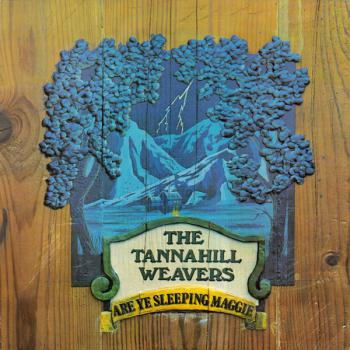
[1794?]
Versi prevalentemente attribuiti al poeta scozzese Hector Macneill (1746-1818) ma in realtà – a quanto leggo su Mudcat Café - la paternità è piuttosto incerta, come spesso capita per le canzoni così antiche e sopravvissute da divenire tradizionali.
La melodia viene spesso indicata come la stessa di “Ye Jacobites by Name” di Robert Burns (che di Macneill fu contemporaneo, di una decina d’anni più vecchio), che però è a sua volta tratta da un’aria precedente, dai più individuata in quella di “Germany Thomas”, come per esempio indicato su Electric Scotland. Il suo titolo farebbe riferimento a tal Thomas Traill, un ufficiale originario delle isole scozzesi Orkney che combattè in Germania nella Guerra dei Trent’anni sotto le insegne del re di Svezia Gustav II Adolf. Thomas Traill pare si dilettasse di poesia e canzoni e, a questo punto, potrebbe essere addirittura lui l’autore originale... (continua)
Versi prevalentemente attribuiti al poeta scozzese Hector Macneill (1746-1818) ma in realtà – a quanto leggo su Mudcat Café - la paternità è piuttosto incerta, come spesso capita per le canzoni così antiche e sopravvissute da divenire tradizionali.
La melodia viene spesso indicata come la stessa di “Ye Jacobites by Name” di Robert Burns (che di Macneill fu contemporaneo, di una decina d’anni più vecchio), che però è a sua volta tratta da un’aria precedente, dai più individuata in quella di “Germany Thomas”, come per esempio indicato su Electric Scotland. Il suo titolo farebbe riferimento a tal Thomas Traill, un ufficiale originario delle isole scozzesi Orkney che combattè in Germania nella Guerra dei Trent’anni sotto le insegne del re di Svezia Gustav II Adolf. Thomas Traill pare si dilettasse di poesia e canzoni e, a questo punto, potrebbe essere addirittura lui l’autore originale... (continua)
My luve's in Germanie;
(continua)
(continua)
inviata da Bernart Bartleby 20/1/2016 - 15:54
Mary Hamilton
anonimo
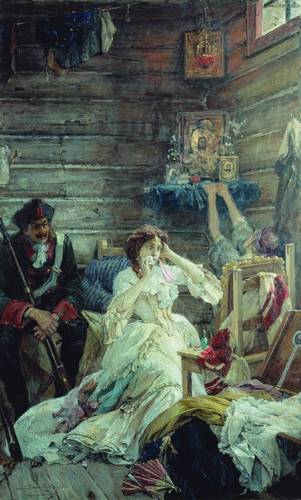
Child #173
[attorno al 1563 | around 1563]
Traditional from Scotland / Tradizionale scozzese
Testo / Text: From Charles Kirkpatrick Sharpe's A Ballad Book, Edinburgh 1823, p. 18
Da A Ballad Book di Charles Kirkpatrick Sharpe, Edimburgo 1823, p. 18
Traditional tune / Melodia tradizionale: Gavin Greig, Last Leaves of Traditional Ballads, edited by Alexander Keith, Aberdeen, Scotland, 1925
[Attribuita a Davide Rizzio (1533-1566)
Attributed to David Rizzio (1533-1566)]
Nota.Buona parte del materiale contenuto in questa pagina era già presente nel sito nella pagina dedicata a Seasons of Murder di Lorcan Otway, canzone dedicata a Rachel Corrie che utilizza la melodia tradizionale di Mary Hamilton. Il materiale è stato interamente modificato e trasferito in questa pagina. [RV]
Francis James Child, come a volte accennato in questo sito, non era particolarmente interessato alle melodie... (continua)
[attorno al 1563 | around 1563]
Traditional from Scotland / Tradizionale scozzese
Testo / Text: From Charles Kirkpatrick Sharpe's A Ballad Book, Edinburgh 1823, p. 18
Da A Ballad Book di Charles Kirkpatrick Sharpe, Edimburgo 1823, p. 18
Traditional tune / Melodia tradizionale: Gavin Greig, Last Leaves of Traditional Ballads, edited by Alexander Keith, Aberdeen, Scotland, 1925
[Attribuita a Davide Rizzio (1533-1566)
Attributed to David Rizzio (1533-1566)]
Nota.Buona parte del materiale contenuto in questa pagina era già presente nel sito nella pagina dedicata a Seasons of Murder di Lorcan Otway, canzone dedicata a Rachel Corrie che utilizza la melodia tradizionale di Mary Hamilton. Il materiale è stato interamente modificato e trasferito in questa pagina. [RV]
Francis James Child, come a volte accennato in questo sito, non era particolarmente interessato alle melodie... (continua)
Word's gane to the kitchen,
(continua)
(continua)
inviata da Riccardo Venturi 6/11/2015 - 19:17
My Love Has Listed (or the White Cockade)
anonimo
Non poteva mancare la versione di Robert Burns. Nota anche come My love was born in Aberdeen, la melodia è un reel comparsa in stampa nell’Apollo’s Banquet di Playford (1687) con il titolo di “Scots tune”, doveva trattarsi di una danza popolare risalente al 1615-30. La ritroviamo anche in Ancient and Modern Scottish Songs di Herd (1776).
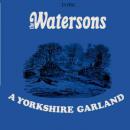
Qui la fanciulla è orgogliosa del suo amore che combatte per la restaurazione degli Stuart nell’ultima rivolta giacobita del 1745.
My love was born in Aberdeen,
(continua)
(continua)
inviata da Cattia Salto 12/9/2015 - 00:30
I Hae Been At(In) Crookieden
anonimo
Il testo è un frammento di una ballata giacobita pubblicata in “Jacobite Relics”, 1810, così Hogg scrive”Is highly popular, and sung in many different ways. It appears, from the numberless copies I have got, that the song had been very short at first, and that parts had been added, now and then, by different hands, until some of the most common editions appear rather like a medley than a regular ballad. This set may be received as the most perfect, all the good verses being in it, and a kind of uniformity throughout. I have been told the song was originally composed by an itinerant ballad-singer, a man of great renown in that profession, ycleped ” mussel-mou’ed Charlie;”* and that while in his possession, it consisted only of four full stanzas, the two first, the first halves of the third and sixth, and the last verse, was made up of the last four lines of the sixth, and the following four:
2... (continua)
2... (continua)
Where have you been all the day,
(continua)
(continua)
inviata da Cattia Salto 11/9/2015 - 23:11
The Braes o' Killiecrankie
anonimo
Killiecrankie è una parola che in gaelico significa “bosco tremulo” ovvero “il bosco degli alberi di pioppo” e sta a indicare un passo di montagna tra Blair Atholl e Pitlochry nel Perthshire: la valle percorsa e dal fiume Garry nel suo punto più stretto è attraversata dalla strada principale che unisce le Highlands e le Lowlands, quella che si dice una tipica “glen” scozzese.
LA BATTAGLIA: 27 luglio 1689 tra i giacobiti e le truppe inglesi guidate dal generale Huge Mackay
VERSIONE DI ROBERT BURNS (1789)
Chi canta è un soldato che chiede ad un altro soldato se abbia combattuto nella battaglia di Killiecrankil (Killiecrankie); la domanda è ironica perchè il primo soldatino è tutto elegante e spensierato, mentre colui che canta probabilmente è un veterano, che ha combattuto nelle truppe di MacKay, e ammonisce chi ascolta di aver incontrato Dundee (e le sue truppe indiavolate) a Killiecrankil.... (continua)
LA BATTAGLIA: 27 luglio 1689 tra i giacobiti e le truppe inglesi guidate dal generale Huge Mackay
VERSIONE DI ROBERT BURNS (1789)
Chi canta è un soldato che chiede ad un altro soldato se abbia combattuto nella battaglia di Killiecrankil (Killiecrankie); la domanda è ironica perchè il primo soldatino è tutto elegante e spensierato, mentre colui che canta probabilmente è un veterano, che ha combattuto nelle truppe di MacKay, e ammonisce chi ascolta di aver incontrato Dundee (e le sue truppe indiavolate) a Killiecrankil.... (continua)
Where hae ye been sae braw, lad?
(continua)
(continua)
inviata da Cattia Salto 11/9/2015 - 22:49
Rob Roy MacGregor, O!
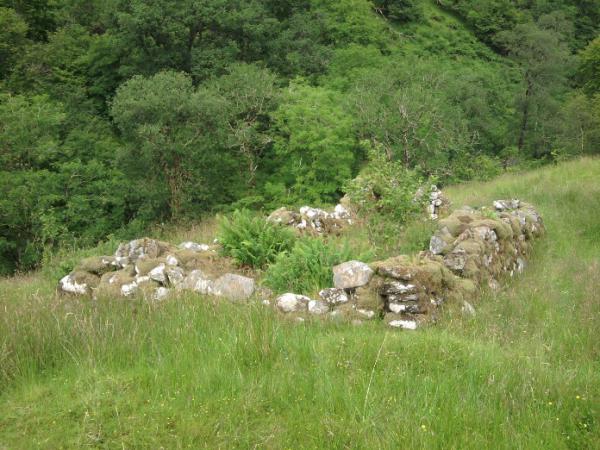
[1818?]
Canzone tradizionale scritta da tal John Davy (1763-1824) per la sua “Rob Roy MacGregor, or, Auld Lang Syne”, opera musicale in tre atti tratta dal racconto “Rob Roy” scritto nel 1817 da Sir Walter Scott.
Sulla melodia dell’antica “Duncan Gray”
Interpretata da Carl Peterson (anche lui appartenente al clan MacGregor) nel suo album “Songs of Rob Roy and the MacGregors”
Patrick “Gilderoy” MacGregor, vissuto nella prima metà del 600, viene spesso confuso con un suo più famoso discendente, Robert Roy MacGregor (1671-1734), anche lui costretto alla macchia per buona parte della sua vita dal vecchio editto di cancellazione e sterminio del clan MacGregor emesso nel 1603 dal re di Scozia James VI, un bando crudele che ebbe termine solo nel 1774, 150 anni dopo.
Rob Roy – questo il nome con cui è passato alla storia diventando un “folk hero” – nacque sulle rive del Loch Ceathairne (il... (continua)
Canzone tradizionale scritta da tal John Davy (1763-1824) per la sua “Rob Roy MacGregor, or, Auld Lang Syne”, opera musicale in tre atti tratta dal racconto “Rob Roy” scritto nel 1817 da Sir Walter Scott.
Sulla melodia dell’antica “Duncan Gray”
Interpretata da Carl Peterson (anche lui appartenente al clan MacGregor) nel suo album “Songs of Rob Roy and the MacGregors”
Patrick “Gilderoy” MacGregor, vissuto nella prima metà del 600, viene spesso confuso con un suo più famoso discendente, Robert Roy MacGregor (1671-1734), anche lui costretto alla macchia per buona parte della sua vita dal vecchio editto di cancellazione e sterminio del clan MacGregor emesso nel 1603 dal re di Scozia James VI, un bando crudele che ebbe termine solo nel 1774, 150 anni dopo.
Rob Roy – questo il nome con cui è passato alla storia diventando un “folk hero” – nacque sulle rive del Loch Ceathairne (il... (continua)
Pardon now the bold outlaw
(continua)
(continua)
inviata da Bernart Bartleby 27/8/2015 - 13:34
Gilderoy
anonimo
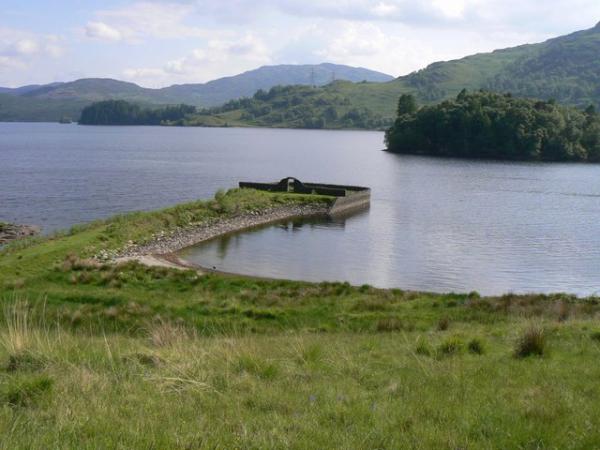
[XVII° secolo]
Ballata nativa della Scozia, poi transitata in Inghilterra, la cui melodia originaria viene fatta risalire all’ “En Gaudeat” gregoriano medievale. La musica si trova già nella prima edizione (1651) de “The Dancing Master”, manuale per le danze inglesi tradizionali pubblicato da John Playford, editore specializzato in musica.
Ballata scozzese, esistente in innumerevoli versioni a partire da broadsides di fine 600, che racconta dell’esecuzione di Patrick del famoso clan MacGregor, un “highwayman”, un “freebooter”, un “cattle-lifter” che imperversò nelle Highlands, in particolare nel Perthshire ed Aberdeenshire, intorno al 1630 e che fu catturato e giustiziato nel 1636 o 1638. Patrick MacGregor era chiamato “Gilrodh”, o “Gilruadh”, o “Gilleruadh”, ossia “ragazzo dai capelli rossi”, e di un rosso scarlatto pare fosse anche la cappa che preferiva indossare.
Ho incontrato questa... (continua)
Ballata nativa della Scozia, poi transitata in Inghilterra, la cui melodia originaria viene fatta risalire all’ “En Gaudeat” gregoriano medievale. La musica si trova già nella prima edizione (1651) de “The Dancing Master”, manuale per le danze inglesi tradizionali pubblicato da John Playford, editore specializzato in musica.
Ballata scozzese, esistente in innumerevoli versioni a partire da broadsides di fine 600, che racconta dell’esecuzione di Patrick del famoso clan MacGregor, un “highwayman”, un “freebooter”, un “cattle-lifter” che imperversò nelle Highlands, in particolare nel Perthshire ed Aberdeenshire, intorno al 1630 e che fu catturato e giustiziato nel 1636 o 1638. Patrick MacGregor era chiamato “Gilrodh”, o “Gilruadh”, o “Gilleruadh”, ossia “ragazzo dai capelli rossi”, e di un rosso scarlatto pare fosse anche la cappa che preferiva indossare.
Ho incontrato questa... (continua)
Gilderoy was a bonnie boy,
(continua)
(continua)
inviata da Bernart Bartleby 25/8/2015 - 13:44
The Braes o’ Glennifer
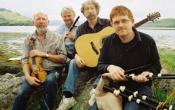
Testo: Robert Tannahill
Melodia—”Saw ye my wee thing” anche se inizialmente il testo fu scritto per la melodia “Bonnie Dundee”
Oggi la collina è compresa in un parco, the Robertson Country Park, formato da zone boschive e dalla brughiera, sul crinale si gode la vista panoramica di Paisley e della valle del Clyde. Per la Gleniffer Braes era solito passeggiare Robert Tannahill, il poeta tessitore, un po’ un Giacomo Leopardi in versione scozzese (studi classici premettendo).
Una fanciulla si lamenta per essersi dovuta separare dal suo Johnny, partito come soldato, e ne attende il ritorno ricordando i bei tempi di quando erano insieme a passeggiare per la collina di Gleniffer. Così la stagione invernale riflette il tormento nell’animo dell’innamorata “The dark days o’ winter war simmer tae me”
terreceltiche
Melodia—”Saw ye my wee thing” anche se inizialmente il testo fu scritto per la melodia “Bonnie Dundee”
Oggi la collina è compresa in un parco, the Robertson Country Park, formato da zone boschive e dalla brughiera, sul crinale si gode la vista panoramica di Paisley e della valle del Clyde. Per la Gleniffer Braes era solito passeggiare Robert Tannahill, il poeta tessitore, un po’ un Giacomo Leopardi in versione scozzese (studi classici premettendo).
Una fanciulla si lamenta per essersi dovuta separare dal suo Johnny, partito come soldato, e ne attende il ritorno ricordando i bei tempi di quando erano insieme a passeggiare per la collina di Gleniffer. Così la stagione invernale riflette il tormento nell’animo dell’innamorata “The dark days o’ winter war simmer tae me”
terreceltiche
Keen blaws the win’ o’er the braes o’ Glennifer
(continua)
(continua)
inviata da dq82 28/6/2015 - 17:58
The Highland Widow's Lament
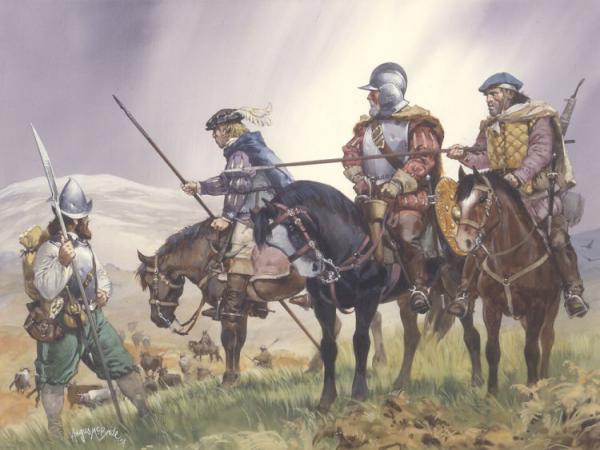
Premetto che il testo è una rielaborazione della versione di Sir Walter Scott dal titolo The Lament of the Border Widow già recensita.
The Highland Widow's Lament (1794)
Scots Musical Museum, Vol. V, #498, page 514, 1796
Melodia "Ochon, ochon, och ri, e"
La rielaborazione di Robert Burns traghetta la vicenda nella causa giacobita e il dolore della vedova diventa il dolore degli Highlanders sconfitti a Culloden (1746): lei è costretta a scendere nelle Lowlands per cercare di sopravvivere. La repressione inglese fu totale nel tentativo di annientare i costumi e le tradizioni della Scozia: era finita l'era dei Clan, vennero proibiti kilt, tartan, le cornamuse e l'uso del gaelico
ulteriori integrazioni Terre celtiche
The Highland Widow's Lament (1794)
Scots Musical Museum, Vol. V, #498, page 514, 1796
Melodia "Ochon, ochon, och ri, e"
La rielaborazione di Robert Burns traghetta la vicenda nella causa giacobita e il dolore della vedova diventa il dolore degli Highlanders sconfitti a Culloden (1746): lei è costretta a scendere nelle Lowlands per cercare di sopravvivere. La repressione inglese fu totale nel tentativo di annientare i costumi e le tradizioni della Scozia: era finita l'era dei Clan, vennero proibiti kilt, tartan, le cornamuse e l'uso del gaelico
ulteriori integrazioni Terre celtiche
I
(continua)
(continua)
inviata da Cattia Salto 17/5/2015 - 22:45
The Flowers O' the Forest
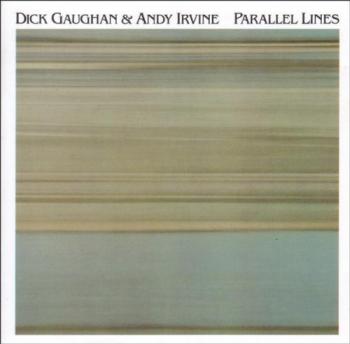
Incisa insieme ad Andy Irvine nel loro disco intitolato “Parallel Lines” pubblicato nel 1982.
The Floo’ers o’ the Forest
The Floo’ers o’ the Forest
THE FLOO’ERS O’ THE FOREST
(continua)
(continua)
inviata da Bernart Bartleby 29/4/2015 - 23:02
The Twa Sisters, or The Cruel Sister
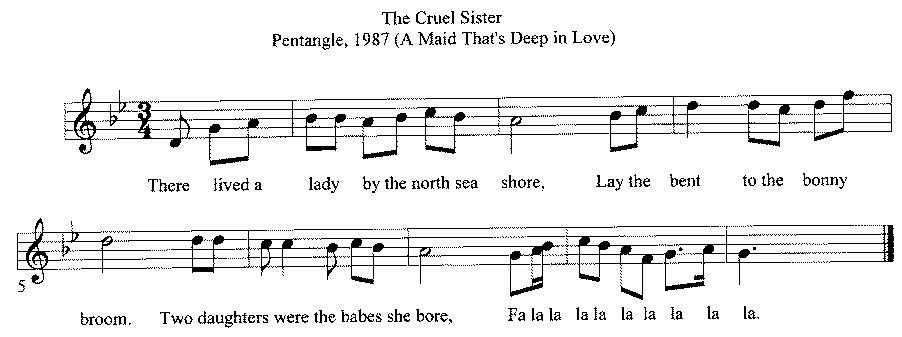
Child #10
Recorded by: Pentangle, Cruel Sister, 1970
Child #10
Incisa da: Pentangle, Cruel Sister, 1970
In memory of John Renbourn, 1944-2015
In memoria di John Renbourn, 1944-2015
John Renbourn si è spento ieri, all'improvviso, per un attacco cardiaco; aveva 71 anni. Ieri, in un brevissimo ricordo a caldo, l'ho definito un compagno di strada assieme ai “suoi” Pentangle; tra le altre cose, proprio ieri ho appreso che anche Bert Jansch se ne era andato, nel 2011, senza che lo avessi saputo. Non so quanto “diranno” ancora questi nomi, quello di John, di Bert, di Jacqui McShee dalla straordinaria voce; per me sono stati coloro che mi hanno aperto il mondo della balladry tradizionale angloscozzese quando avevo poco più di quindici anni. Non riesco neppure a dire quanti ricordi siano, per me, legati ai Pentangle e a John Renbourn; basti quello di The Cuckoo. In memoria di John Renbourn,... (continua)
Recorded by: Pentangle, Cruel Sister, 1970
Child #10
Incisa da: Pentangle, Cruel Sister, 1970
In memory of John Renbourn, 1944-2015
In memoria di John Renbourn, 1944-2015
John Renbourn si è spento ieri, all'improvviso, per un attacco cardiaco; aveva 71 anni. Ieri, in un brevissimo ricordo a caldo, l'ho definito un compagno di strada assieme ai “suoi” Pentangle; tra le altre cose, proprio ieri ho appreso che anche Bert Jansch se ne era andato, nel 2011, senza che lo avessi saputo. Non so quanto “diranno” ancora questi nomi, quello di John, di Bert, di Jacqui McShee dalla straordinaria voce; per me sono stati coloro che mi hanno aperto il mondo della balladry tradizionale angloscozzese quando avevo poco più di quindici anni. Non riesco neppure a dire quanti ricordi siano, per me, legati ai Pentangle e a John Renbourn; basti quello di The Cuckoo. In memoria di John Renbourn,... (continua)
There was twa sisters in a bow’r,
(continua)
(continua)
inviata da Riccardo Venturi 28/3/2015 - 10:47
Fiume Sand Creek
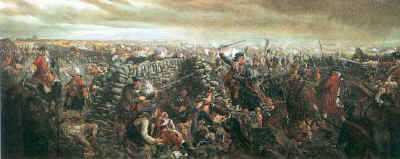
SCOZZESE / SCOTS - Derrick MacClure
Questo è scozzese: non gaelico, la lingua delle nostre regioni montagnose e dell’ isole del ovest, ma la lingua della pianura, parente all’inglese ma con una storia distinta incominciata nel trecento. La letteratura scozzese comprende molte traduzioni, dall’ italiano e altre lingue: ecco un esempio.
SANN CREEK RIVER
(continua)
(continua)
inviata da Derrick MacClure 26/2/2015 - 16:14
Oh Dear Me (The Jute Mill Song)
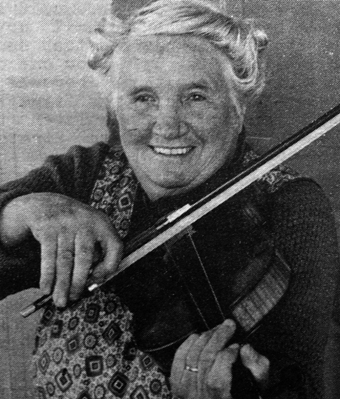
[1920s]
Canzone scritta da Mary Brooksbank (1897-1978), operaia tessile, sindacalista e militante socialista originaria di Aberdeen, Scozia. Membro del partito comunista inglese, negli anni 20 e 30 passò diverso tempo nelle regie galere per via della sua militanza politica. Nel 36 o 37 fu espulsa dal partito per aver detto pubblicamente che Stalin era un brutale fascista e un assassino di massa.
Il testo – ripreso da Mudcat Café – si trova nella raccolta poetica intitolata “Sidlaw Breezes”, pubblicata nel 1966.
Interpretata da moltissimi artisti, a cominciare dal Ian Campbell Folk Group (“This Is The Ian Campbell Folk Group!”, 1963)
“I have never had any personal ambitions. I have but one: to make my contribution to destroy the capitalist system.” Mary Brooksbank.
“The life of the women workers of Dundee right up to the thirties was ... a living hell of hard work and poverty. It was... (continua)
Canzone scritta da Mary Brooksbank (1897-1978), operaia tessile, sindacalista e militante socialista originaria di Aberdeen, Scozia. Membro del partito comunista inglese, negli anni 20 e 30 passò diverso tempo nelle regie galere per via della sua militanza politica. Nel 36 o 37 fu espulsa dal partito per aver detto pubblicamente che Stalin era un brutale fascista e un assassino di massa.
Il testo – ripreso da Mudcat Café – si trova nella raccolta poetica intitolata “Sidlaw Breezes”, pubblicata nel 1966.
Interpretata da moltissimi artisti, a cominciare dal Ian Campbell Folk Group (“This Is The Ian Campbell Folk Group!”, 1963)
“I have never had any personal ambitions. I have but one: to make my contribution to destroy the capitalist system.” Mary Brooksbank.
“The life of the women workers of Dundee right up to the thirties was ... a living hell of hard work and poverty. It was... (continua)
Oh, dear me, the mill's gaen fest,
(continua)
(continua)
inviata da Bernart Bartleby 3/11/2014 - 10:13
The Pressers
anonimo
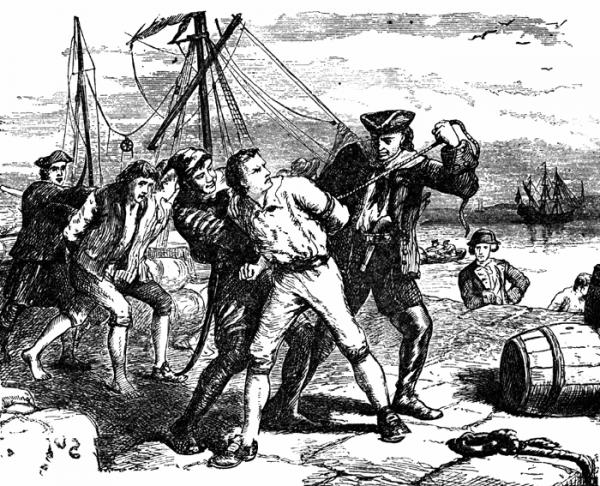
Canzone risalente alle guerre napoleoniche (1803-1815… il “Boney” nella terza strofa è proprio Napoleone Bonaparte), nel testo ripreso e riadattato da Mary Brooksbank (1897-1978), operaia tessile, sindacalista e militante socialista originaria di Aberdeen, Scozia.
Incisa da artisti come Ray Fisher (album “Willie's Lady”, 1982) e gli Stravaig (album “Movin' On, 1994).
Testo trovato su Traditional Music
Ancora una per le già molte canzoni presenti sul sito a proposito del cosiddetto “Impressment”, la pratica di arruolamento forzato (spesso un sequestro violento) con cui la Royal Navy, tra la fine del 17° secolo ed il 1815 (definitiva capitolazione di Napoleone), si procurò le ciurme per le sue navi da guerra…
Incisa da artisti come Ray Fisher (album “Willie's Lady”, 1982) e gli Stravaig (album “Movin' On, 1994).
Testo trovato su Traditional Music
Ancora una per le già molte canzoni presenti sul sito a proposito del cosiddetto “Impressment”, la pratica di arruolamento forzato (spesso un sequestro violento) con cui la Royal Navy, tra la fine del 17° secolo ed il 1815 (definitiva capitolazione di Napoleone), si procurò le ciurme per le sue navi da guerra…
There is nocht in this wide world but sorrow and care
(continua)
(continua)
inviata da Bernart Bartleby 31/10/2014 - 13:46
Sgt. McKenzie
Joseph Klina McKenzie
Lay me doon in the caul, caul groon
(continua)
(continua)
inviata da John Doe 21/10/2014 - 22:39
Percorsi:
Eroi
The Wark O' The Weavers
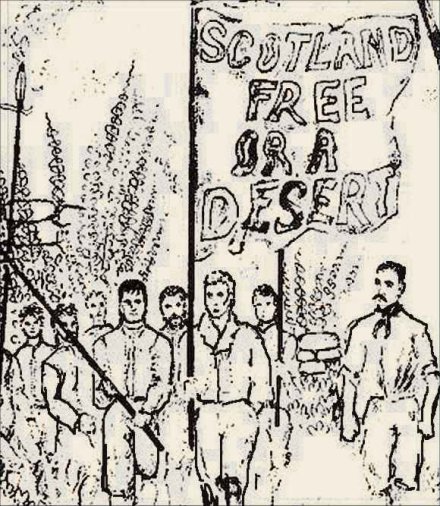
David Shaw di Forfar, Scozia – autore pure di The Forfar Soldier già presente su questo sito – era un “weaver”, un operaio tessile che amava comporre canzoni. Siccome pare sia morto intorno al 1856, fu sicuramente testimone, se non protagonista, del grande sciopero armato che i lavoratori scozzesi, i tessili in testa, proclamarono nel 1820 per protestare contro le condizioni di lavoro, le paghe da fame e la disoccupazione galoppante dovuta alla crisi successiva alla fine delle guerre napoleoniche e all’avvento dei primi telai meccanici.
Più che uno sciopero fu proprio un’insurrezione in nome della fine dello sfruttamento e per l’eguaglianza dei diritti, insomma una protesta armata ispirata ai valori della Rivoluzione francese. Nei primi giorni di aprile del 1820 si verificarono parecchi scontri tra manifestanti ed esercito e polizia. Le forze della repressione ebbero la meglio,... (continua)
Più che uno sciopero fu proprio un’insurrezione in nome della fine dello sfruttamento e per l’eguaglianza dei diritti, insomma una protesta armata ispirata ai valori della Rivoluzione francese. Nei primi giorni di aprile del 1820 si verificarono parecchi scontri tra manifestanti ed esercito e polizia. Le forze della repressione ebbero la meglio,... (continua)
We're a' met thegither here tae sit an' tae crack,
(continua)
(continua)
inviata da Bernart 24/7/2013 - 15:11
Hearts and Minds
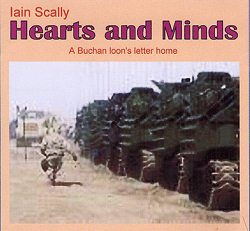
[2007]
Lyrics by Jean Souter Bambrick
Music by Iain Scally
Hearts and Minds is a protest of a different sort. It's the observations of an ordinary bloke who happens to be a soldier. He's doing his job and duty in the unhealthy atmosphere of Iraq but can still look around him and see parallels between the folks getting on with their daily life despite the same unhealthy atmosphere and his own parents eking out an existence on a croft in Buchan.'
"A "single", featuring the words of a poem written by a friend, Jean Bambrick, a former journalist who tells the story of a Buchan loon writing home to his parents with his observations of the day to day existence of Iraqi families who are caught up in the conflict but just want to get on with their lives as best they can".
Hearts and Minds (A Buchan loon's Letter Home)
Lyrics by Jean Souter Bambrick
Music by Iain Scally
Hearts and Minds is a protest of a different sort. It's the observations of an ordinary bloke who happens to be a soldier. He's doing his job and duty in the unhealthy atmosphere of Iraq but can still look around him and see parallels between the folks getting on with their daily life despite the same unhealthy atmosphere and his own parents eking out an existence on a croft in Buchan.'
"A "single", featuring the words of a poem written by a friend, Jean Bambrick, a former journalist who tells the story of a Buchan loon writing home to his parents with his observations of the day to day existence of Iraqi families who are caught up in the conflict but just want to get on with their lives as best they can".
Hearts and Minds (A Buchan loon's Letter Home)
Dear Mither ah'm writin' –frae a place near Baghdad
(continua)
(continua)
inviata da giorgio 30/5/2013 - 13:05
Twa Recruitin' Sergeants
anonimo
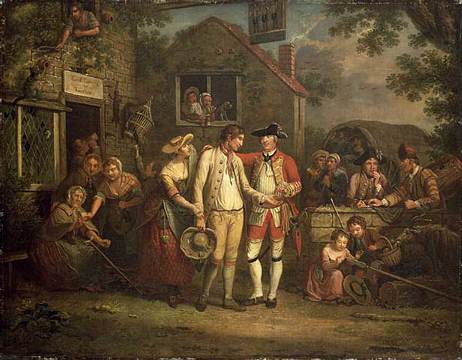
[~18th century]
Even before the 1745 Jacobite Uprising, the government were using the fighting qualities of the Highlanders in British regiments. Even so, they had to sometimes work hard to persuade (alas!) the young lads to sign up and take the King's shilling….
This is one of several Irish recruiting songs from the 19th Century. Other popular ones include "The Kerry Recruit", "The Tipperary Recruit" and "The Recruiting Sergeant".
It seems that the sergeants are struggling to make their targets in spite of their sales pitch..
Even before the 1745 Jacobite Uprising, the government were using the fighting qualities of the Highlanders in British regiments. Even so, they had to sometimes work hard to persuade (alas!) the young lads to sign up and take the King's shilling….
This is one of several Irish recruiting songs from the 19th Century. Other popular ones include "The Kerry Recruit", "The Tipperary Recruit" and "The Recruiting Sergeant".
It seems that the sergeants are struggling to make their targets in spite of their sales pitch..
Twa recruiting sergeants came frae the Black Watch
(continua)
(continua)
inviata da giorgio 6/5/2012 - 15:23
Laidlaw's Last Lament
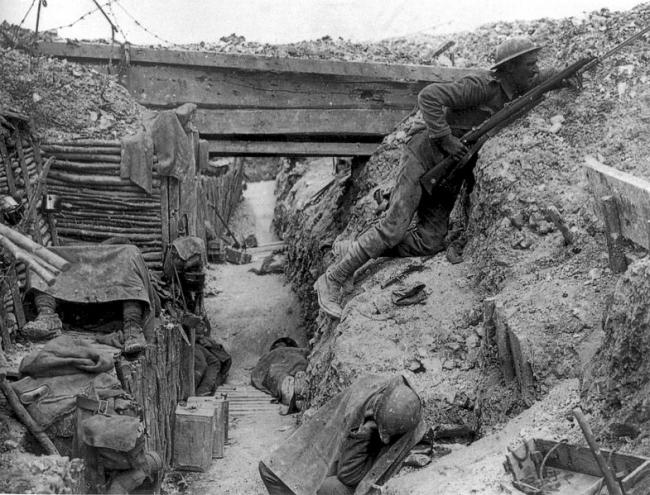
[2000]
Lyrics & Music by David Kilpatrick
An atmospheric Border Scots ballad in the auld tradition: how 'the Piper of Loos' saved the 7th Battalion of the King's Own Scottish Borderers in October 1915..
"The week before Armistice Day (November 11) 1999 a story was published in the Southern Reporter, researched by Bill Bruce, which neatly and emotively retold how Piper D L Laidlaw VC reversed the fortunes of a Border battalion fighting in the trenches of the Great War. I wrote the song in a moderate Border Scots dialect, which is easily understood, and played it locally. The lyrics were published by the newspaper. Like most of my songs, the inspiration was immediate and it took around 90 minutes to complete and a further hour to record. This is the second take. The pipes, ambient noise and gunfire effects are added on a Roland JV-50 keyboard and the rest is a one-take recording, playing a Lowden O-10 guitar in drop D tuning and singing. The recording is on a Roland VS-880".
Lyrics & Music by David Kilpatrick
An atmospheric Border Scots ballad in the auld tradition: how 'the Piper of Loos' saved the 7th Battalion of the King's Own Scottish Borderers in October 1915..
"The week before Armistice Day (November 11) 1999 a story was published in the Southern Reporter, researched by Bill Bruce, which neatly and emotively retold how Piper D L Laidlaw VC reversed the fortunes of a Border battalion fighting in the trenches of the Great War. I wrote the song in a moderate Border Scots dialect, which is easily understood, and played it locally. The lyrics were published by the newspaper. Like most of my songs, the inspiration was immediate and it took around 90 minutes to complete and a further hour to record. This is the second take. The pipes, ambient noise and gunfire effects are added on a Roland JV-50 keyboard and the rest is a one-take recording, playing a Lowden O-10 guitar in drop D tuning and singing. The recording is on a Roland VS-880".
In Scotland we were brothers three
(continua)
(continua)
inviata da giorgio 7/12/2010 - 16:36
Percorsi:
La Grande Guerra (1914-1918)
Lettera ad Angela

fu' wi' luve an' joy
November 14, 2010
November 14, 2010
A LETTER TO ANGELA
(continua)
(continua)
14/11/2010 - 21:06
The Oil Beneath The Sea
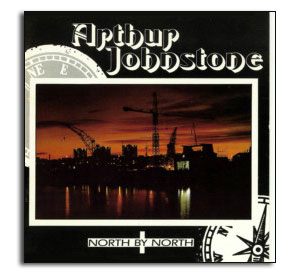
[1991]
Album “North By North”
Written by John McGrath
Adapted by Danny Couper
Una canzone sui disastri ambientali, economici e sociali della predazione dell’oro nero nel mare del Nord, al largo di Aberdeen e delle coste scozzesi.
Album “North By North”
Written by John McGrath
Adapted by Danny Couper
Una canzone sui disastri ambientali, economici e sociali della predazione dell’oro nero nel mare del Nord, al largo di Aberdeen e delle coste scozzesi.
The oil, the oil, the oil beneath the sea
(continua)
(continua)
inviata da The Lone Ranger 30/4/2010 - 11:10
The Glesca Eskimos
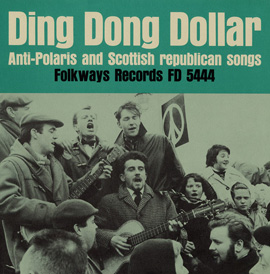
[1962]
Album “Ding Dong Dollar: Anti-Polaris and Scottish Republican Songs”, Folkways Records.
Tune: Marching Through Georgia
Written by T. S. Law, Morris Blythman and Jim McLean.
La USS Proteus alla fonda nella baia scozzese di Holy Loch nel 1961.
Nella primavera del 1961 a Holy Loch gli attivisti della Scottish Campaign for Nuclear Disarmament provarono a fermare le navi americane cariche di missili nucleari… Ci provarono pacificamente, provando a sbarrare il passo a fregate e sommergibili con dei piccoli kayak… Quando poi il comandante della USS Proteus, tal Lanin, dichiarò – con sensibilità tutta militare - che le proteste non lo preoccupavano e che i manifestanti erano soltanto “un dannato branco di eschimesi”, quelli presero la palla al balzo e ci scrissero su questa canzone: “Siamo tutto eschimesi! Siamo gli eschimesi di Glasgow, che fermano le corazzate con le canoe!”
“On... (continua)
Album “Ding Dong Dollar: Anti-Polaris and Scottish Republican Songs”, Folkways Records.
Tune: Marching Through Georgia
Written by T. S. Law, Morris Blythman and Jim McLean.
La USS Proteus alla fonda nella baia scozzese di Holy Loch nel 1961.
Nella primavera del 1961 a Holy Loch gli attivisti della Scottish Campaign for Nuclear Disarmament provarono a fermare le navi americane cariche di missili nucleari… Ci provarono pacificamente, provando a sbarrare il passo a fregate e sommergibili con dei piccoli kayak… Quando poi il comandante della USS Proteus, tal Lanin, dichiarò – con sensibilità tutta militare - che le proteste non lo preoccupavano e che i manifestanti erano soltanto “un dannato branco di eschimesi”, quelli presero la palla al balzo e ci scrissero su questa canzone: “Siamo tutto eschimesi! Siamo gli eschimesi di Glasgow, che fermano le corazzate con le canoe!”
“On... (continua)
Hullo! Hullo! We are the Eskimos!
(continua)
(continua)
inviata da Alessandro 23/4/2010 - 11:54
Auchengeich Disaster
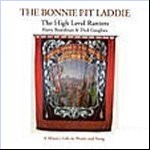
[1959]
Lyrics by Norman Buchan
Music: traditional (to the tune known as "Skippin Barfit Thro The Heather")
The Bonnie Pit Laddie (1975)
In September 1959, 47 men lost their lives in a coal mine near the town of Auchengeich when a faulty fan purifying the air in the colliery went on fire due to an electrical fault. The men were in bogies travelling to the coal face to start work, and due to the intense smoke they were abandoned just a few hundred yards from safety. The mine was eventually flooded to put out the fire; there was only one survivor from the crews. The Mining accident was one of the worst within the UK in the 20th century, widowing 41 women and leaving 76 children without a father.
In September 2009, a memorial was erected by the Auchengeich Miners Welfare honouring the forty-seven men who lost their lives in the Auchengeich mining disaster of 18 September, 1959. In the early hours of 19 November, 2009, part of the memorial – an uninsured bronze representation of a miner, worth between £35,000 and £40,000 – was stolen…
Lyrics by Norman Buchan
Music: traditional (to the tune known as "Skippin Barfit Thro The Heather")
The Bonnie Pit Laddie (1975)
In September 1959, 47 men lost their lives in a coal mine near the town of Auchengeich when a faulty fan purifying the air in the colliery went on fire due to an electrical fault. The men were in bogies travelling to the coal face to start work, and due to the intense smoke they were abandoned just a few hundred yards from safety. The mine was eventually flooded to put out the fire; there was only one survivor from the crews. The Mining accident was one of the worst within the UK in the 20th century, widowing 41 women and leaving 76 children without a father.
In September 2009, a memorial was erected by the Auchengeich Miners Welfare honouring the forty-seven men who lost their lives in the Auchengeich mining disaster of 18 September, 1959. In the early hours of 19 November, 2009, part of the memorial – an uninsured bronze representation of a miner, worth between £35,000 and £40,000 – was stolen…
In Auchengeich there stands a pit
(continua)
(continua)
inviata da giorgio 12/2/2010 - 08:49
Sir Patrick Spens
anonimo
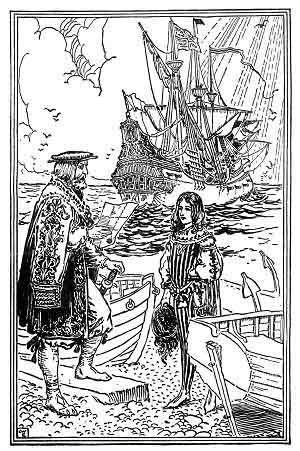
#Child 58
Traditional Scottish
Tradizionale Scozzese
Origini: XIII secolo (?)
Origin: 13th century (?)
Fonte: Thomas Percy, Reliques of Ancient English Poetry, I, 72
Source: Thomas Percy, Reliques of Ancient English Poetry, I, 72
La versione più antica di Sir Patrick Spens, proveniente dalle Reliques of Ancient English Poetry di Thomas Percy (I,72) e trascritta, a suo dire, da "due copie manoscritte pervenutegli in tempi diversi", può a buon diritto essere considerata la più bella ballata non solo della Scozia, ma anche delle intere Isole Britanniche. La sua autentica bellezza la rende ospite fissa di ogni antologia della letteratura inglese.
La ballata è celebre per la sua struttura "cinematografica", con l'improvvisa transizione tra la corte del Re e la spiaggia dove Sir Patrick sta camminando (strofa 3) e dove legge incredulo, tra il riso iniziale di quando pensa che sia uno scherzo... (continua)
Traditional Scottish
Tradizionale Scozzese
Origini: XIII secolo (?)
Origin: 13th century (?)
Fonte: Thomas Percy, Reliques of Ancient English Poetry, I, 72
Source: Thomas Percy, Reliques of Ancient English Poetry, I, 72
La versione più antica di Sir Patrick Spens, proveniente dalle Reliques of Ancient English Poetry di Thomas Percy (I,72) e trascritta, a suo dire, da "due copie manoscritte pervenutegli in tempi diversi", può a buon diritto essere considerata la più bella ballata non solo della Scozia, ma anche delle intere Isole Britanniche. La sua autentica bellezza la rende ospite fissa di ogni antologia della letteratura inglese.
La ballata è celebre per la sua struttura "cinematografica", con l'improvvisa transizione tra la corte del Re e la spiaggia dove Sir Patrick sta camminando (strofa 3) e dove legge incredulo, tra il riso iniziale di quando pensa che sia uno scherzo... (continua)
The King sits in Dumferling toune
(continua)
(continua)
inviata da Riccardo Venturi 8/2/2010 - 11:14
Workin' In the Foondry
[2000]
Lyrics and music Stuart Simpson
Album: The Bo'ness Ballads [2005]
Lyrics and music Stuart Simpson
Album: The Bo'ness Ballads [2005]
"With The big Foondry Chorus. A somewhat humorous look at Victorian working conditions. Acoustic Guitar and banjo. In the Scottish Folk style, I think!
The song deals with conditions for Iron Foundry (Foondry) workers from 1850 to the 1950s, where jobs were almost hereditary, passed from father to son, and housing was owned by the foundry owners. Inspired in part by my uncle Ian, who worked there for all his working life. "
The song deals with conditions for Iron Foundry (Foondry) workers from 1850 to the 1950s, where jobs were almost hereditary, passed from father to son, and housing was owned by the foundry owners. Inspired in part by my uncle Ian, who worked there for all his working life. "
Workin' in the foondry, tryin' tae mak a wage,
(continua)
(continua)
inviata da giorgio 3/12/2009 - 12:11
The John MacLean March
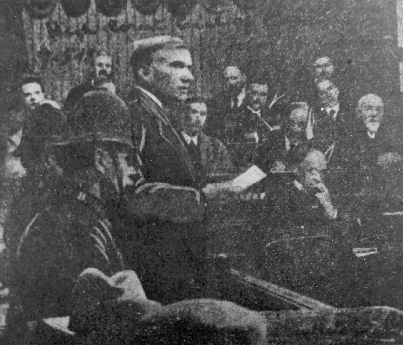
[1948?]
Versi di Hamish Henderson
Su di una melodia tradizionale scozzese
“The John MacLean March had its first performance in the St. Andrews Hall, Glasgow, at the memorial [concert?] to the great Scottish republican socialist on 28 Nov. 1948, where it was sung by William Noble. It is set to a traditional version of a pipe melody that is today played and sung all over Scotland to the more commercially patriotic verses of Scotland the Brave.” (da Henry's Songbook)
Il brano è stato interpretato da moltissimi artisti e gruppi scozzesi, a cominciare da Dick Gaughan (in “No More Forever” del 1972) e Iain MacKintosh (in “By Request” del 1974).
Come Ballad Of John MacLean di Matt McGinn, un'altra canzone dedicata alla figura di John Maclean, socialista scozzese, noto per la sua fiera opposizione alla prima guerra mondiale. Per questo nel 1918 fu processato per sedizione. Durante l'udienza... (continua)
Versi di Hamish Henderson
Su di una melodia tradizionale scozzese
“The John MacLean March had its first performance in the St. Andrews Hall, Glasgow, at the memorial [concert?] to the great Scottish republican socialist on 28 Nov. 1948, where it was sung by William Noble. It is set to a traditional version of a pipe melody that is today played and sung all over Scotland to the more commercially patriotic verses of Scotland the Brave.” (da Henry's Songbook)
Il brano è stato interpretato da moltissimi artisti e gruppi scozzesi, a cominciare da Dick Gaughan (in “No More Forever” del 1972) e Iain MacKintosh (in “By Request” del 1974).
Come Ballad Of John MacLean di Matt McGinn, un'altra canzone dedicata alla figura di John Maclean, socialista scozzese, noto per la sua fiera opposizione alla prima guerra mondiale. Per questo nel 1918 fu processato per sedizione. Durante l'udienza... (continua)
Hey Mac did ye see him as ye cam' doon by Gorgie,
(continua)
(continua)
inviata da Alessandro 30/9/2009 - 10:52
Freedom Come Aa Ye

[1960]
Written to the pipes tune The Bloody Fields of Flanders
Registrata, fra gli altri, anche da Dick Gaughan in "Earl O' Moray" (1978)
Freedom Come-All-Ye is a song written by Hamish Henderson, the Scottish poet, songwriter, and intellectual. It is written in the Scots Language. Freedom Come-All-Ye, one of Henderson's most important songs, gives a non-romantic, revisionist view of the role of the Scots in the world at the time it was written. It describes a wind of change blowing through Scotland and the world at large, sweeping away exploitation and imperialism. It renounces the tradition of the Scottish soldier both as imperial cannon-fodder and colonial oppressor, and ends with a vision of a future global society which is multiracial and just.
The song was written in 1960, to an adaptation of the First World War pipe march The Bloody Fields of Flanders, which Henderson first heard... (continua)
Written to the pipes tune The Bloody Fields of Flanders
Registrata, fra gli altri, anche da Dick Gaughan in "Earl O' Moray" (1978)
Freedom Come-All-Ye is a song written by Hamish Henderson, the Scottish poet, songwriter, and intellectual. It is written in the Scots Language. Freedom Come-All-Ye, one of Henderson's most important songs, gives a non-romantic, revisionist view of the role of the Scots in the world at the time it was written. It describes a wind of change blowing through Scotland and the world at large, sweeping away exploitation and imperialism. It renounces the tradition of the Scottish soldier both as imperial cannon-fodder and colonial oppressor, and ends with a vision of a future global society which is multiracial and just.
The song was written in 1960, to an adaptation of the First World War pipe march The Bloody Fields of Flanders, which Henderson first heard... (continua)
Roch the win i the clear day's dawin
(continua)
(continua)
inviata da Alessandro 24/9/2009 - 14:22
Logan Braes
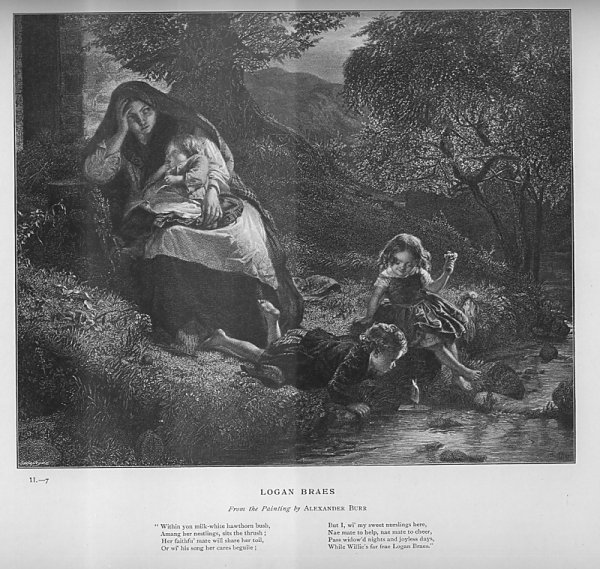
[1793]
Sull’aria di "Logan Water", un’antica canzone scozzese la cui prima trascrizione nota risale al 1709.
Logan Water è un fiume che sgorga sulle colline nel sud ovest della Scozia, tra Lesmahagow e Muirkirk. E’ un affluente del Nethan River che a sua volta finisce poi nel Clyde.
"25th June 1793.
Have you ever, my dear sir, felt your bosom ready to burst with indignation, on reading of, or seeing how, the mighty villains who divide kingdom against kingdom, desolate provinces, and lay nations waste, out of the wantonness of ambition, or often from still more ignoble passions? In a mood of this kind to-day, I recollected the air of Logan Water, and it occurred to me that its querulous melody probably had its origin from the plaintive indignation of some swelling, suffering heart, fired at the tyrannic strides of some Public Destroyer, and overwhelmed with private distress the consequence... (continua)
Sull’aria di "Logan Water", un’antica canzone scozzese la cui prima trascrizione nota risale al 1709.
Logan Water è un fiume che sgorga sulle colline nel sud ovest della Scozia, tra Lesmahagow e Muirkirk. E’ un affluente del Nethan River che a sua volta finisce poi nel Clyde.
"25th June 1793.
Have you ever, my dear sir, felt your bosom ready to burst with indignation, on reading of, or seeing how, the mighty villains who divide kingdom against kingdom, desolate provinces, and lay nations waste, out of the wantonness of ambition, or often from still more ignoble passions? In a mood of this kind to-day, I recollected the air of Logan Water, and it occurred to me that its querulous melody probably had its origin from the plaintive indignation of some swelling, suffering heart, fired at the tyrannic strides of some Public Destroyer, and overwhelmed with private distress the consequence... (continua)
O Logan, sweetly didst thou glide,
(continua)
(continua)
inviata da Alessandro 23/9/2009 - 09:43
King Orfeo [feat. Harpens kraft]
![King Orfeo [<i>feat.</i> Harpens kraft]](img/upl/kingorfeo.jpg)
Child #19
Origins: XIV Century
Recording: 1880
Origini: XIV Secolo
Registrazione: 1880
Dedica a Alessandro il Gutnico
Ogni promessa è debito: dopo la discussione/disquisizione su ogni tipo di linguaggio germanico e celtico avvenuta sulla pagina dedicata a Jamie Foyers, avevo promesso a Alessandro di fargli vedere, e ora di dedicargli, la venerabilissima, straordinaria e linguisticamente variopinta King Orfeo. Con questo "extra" ci spingiamo in un lontanissimo medioevo nordico che, però, riprende tradizioni dell'antichità classica: un segno che, in quelle lontane epoche, la cultura viaggiava assai, e così la memoria. La dedica viene estesa anche a tutti coloro che coltivano il medioevo non come facciata modaiola, ma come amore per un'epoca tutt'altro che "oscura" e, per tanti versi, ben più libera e aperta della nostra. Il testo, la traduzione ed il commento sono ripresi dal mio vecchio... (continua)
Origins: XIV Century
Recording: 1880
Origini: XIV Secolo
Registrazione: 1880
Dedica a Alessandro il Gutnico
Ogni promessa è debito: dopo la discussione/disquisizione su ogni tipo di linguaggio germanico e celtico avvenuta sulla pagina dedicata a Jamie Foyers, avevo promesso a Alessandro di fargli vedere, e ora di dedicargli, la venerabilissima, straordinaria e linguisticamente variopinta King Orfeo. Con questo "extra" ci spingiamo in un lontanissimo medioevo nordico che, però, riprende tradizioni dell'antichità classica: un segno che, in quelle lontane epoche, la cultura viaggiava assai, e così la memoria. La dedica viene estesa anche a tutti coloro che coltivano il medioevo non come facciata modaiola, ma come amore per un'epoca tutt'altro che "oscura" e, per tanti versi, ben più libera e aperta della nostra. Il testo, la traduzione ed il commento sono ripresi dal mio vecchio... (continua)
KING ORFEO
(continua)
(continua)
inviata da Riccardo Venturi 23/9/2009 - 00:51
Whaur Dae Ye Lie?
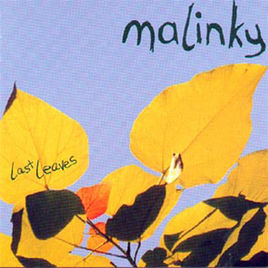
[2000]
Album "Last Leaves"
Una canzone in memoria delle 8.000 vittime del massacro di Srebrenica, in Bosnia, ad opera delle truppe della Republika Srpska (VRS) al comando di Ratko Mladić, luglio 1995.
Album "Last Leaves"
Una canzone in memoria delle 8.000 vittime del massacro di Srebrenica, in Bosnia, ad opera delle truppe della Republika Srpska (VRS) al comando di Ratko Mladić, luglio 1995.
Whaur dae ye lie, my faither?
(continua)
(continua)
inviata da Alessandro 20/9/2009 - 15:17
Percorsi:
Guerre nei Balcani negli anni '90
The Green Fields Of France (No Man's Land)

FLOWERS OF THE FOREST
Le parole della canzone citata in The Green Fields Of France, di Jean Eliot (1756)
vedi Wikipedia
Le parole della canzone citata in The Green Fields Of France, di Jean Eliot (1756)
vedi Wikipedia
FLOWERS OF THE FOREST
(continua)
(continua)
6/9/2009 - 19:02
Lamkin
anonimo
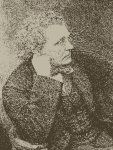
Child #93
Tradizionale inglese
English Traditional
[XII/XV sec./century ?]
Testo / Lyrics: Jamieson, I, 176
Lamkin: Una “vertenza sindacale” nel Medioevo
di Riccardo Venturi
Poiché è compito e intento di questo sito proporre le “radici” di ogni suo argomento, andando a ritroso nelle tradizioni popolari di tutti i paesi, proponiamo qui questa terribile storia (Jamieson, I, 176; Child #93) che ci riporta ai tempi (circa tra il XII e il XV secolo) in cui i castelli dei nobili inglesi e scozzesi venivano costruiti da maestranze provenienti dalle Fiandre. Il nome del protagonista, Lamkin, sembra infatti essere il diminutivo fiammingo (Lambkijn, Lamkijn) di “Lambert”; anche se la sua assonanza con l'inglese “Lambkin”, ovvero “agnellino”, aggiunge un pizzico di tragica ironia a tutta la storia (e dal testo della ballata, appare chiaro che il protagonista è assai infastidito dall'essere chiamato... (continua)
Tradizionale inglese
English Traditional
[XII/XV sec./century ?]
Testo / Lyrics: Jamieson, I, 176
Lamkin: Una “vertenza sindacale” nel Medioevo
di Riccardo Venturi
Poiché è compito e intento di questo sito proporre le “radici” di ogni suo argomento, andando a ritroso nelle tradizioni popolari di tutti i paesi, proponiamo qui questa terribile storia (Jamieson, I, 176; Child #93) che ci riporta ai tempi (circa tra il XII e il XV secolo) in cui i castelli dei nobili inglesi e scozzesi venivano costruiti da maestranze provenienti dalle Fiandre. Il nome del protagonista, Lamkin, sembra infatti essere il diminutivo fiammingo (Lambkijn, Lamkijn) di “Lambert”; anche se la sua assonanza con l'inglese “Lambkin”, ovvero “agnellino”, aggiunge un pizzico di tragica ironia a tutta la storia (e dal testo della ballata, appare chiaro che il protagonista è assai infastidito dall'essere chiamato... (continua)
It's Lamkin was a mason good as ere built wi’ stane;
(continua)
(continua)
inviata da CCG/AWS Staff 16/4/2009 - 18:21
I Come and Stand at Every Door
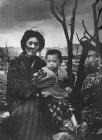
The Great Silkie Of Sule Skerrie
# Child 113
L'antichissima ballata scozzese nella classica interpretazione di Joan Baez (da Joan Baez Ballad Book, vol. I, 1969). Testo: The Oxford Book Of Ballads, edited by Sir Arthur Quiller-Couch ("Q"), 1910; a sua volta ripreso da: Proceedings of the Society of Antiquaries of Scotland, I (1852), 86. Joan Baez, nella sua versione, si allontana in alcuni punti dalla pronuncia scozzese e non canta la strofa indicata tra [parentesi quadre].
Molto del grande successo di questa canzone, oltre all'emozionante testo di Nâzim Hikmet tradotto da Pete Seeger e interpretato dai Byrds, è dovuto alla melodia assolutamente unica, rielaborata (ma con nessuna modifica sostanziale) da quella dell'antica ballata scozzese The Great Silkie of Sule Skerrie. La seguente presentazione fu da me preparata nel 1988 per un Sito sulle Child Ballads; la riprendo per l'occasione.... (continua)
# Child 113
L'antichissima ballata scozzese nella classica interpretazione di Joan Baez (da Joan Baez Ballad Book, vol. I, 1969). Testo: The Oxford Book Of Ballads, edited by Sir Arthur Quiller-Couch ("Q"), 1910; a sua volta ripreso da: Proceedings of the Society of Antiquaries of Scotland, I (1852), 86. Joan Baez, nella sua versione, si allontana in alcuni punti dalla pronuncia scozzese e non canta la strofa indicata tra [parentesi quadre].
Molto del grande successo di questa canzone, oltre all'emozionante testo di Nâzim Hikmet tradotto da Pete Seeger e interpretato dai Byrds, è dovuto alla melodia assolutamente unica, rielaborata (ma con nessuna modifica sostanziale) da quella dell'antica ballata scozzese The Great Silkie of Sule Skerrie. La seguente presentazione fu da me preparata nel 1988 per un Sito sulle Child Ballads; la riprendo per l'occasione.... (continua)
An earthly nourrice sits and sings,
(continua)
(continua)
inviata da Riccardo Venturi 9/4/2009 - 22:21
×
![]()

![The Bonnie Banks o' Loch Lomond [Loch Lomond; Farewell to the Creeks]](img/upl/Hero_Loch_Lomond-1800x1080.jpg)
![The Bonnie Banks o' Loch Lomond [Loch Lomond; Farewell to the Creeks]](img/upl/scotpoets.jpg)
